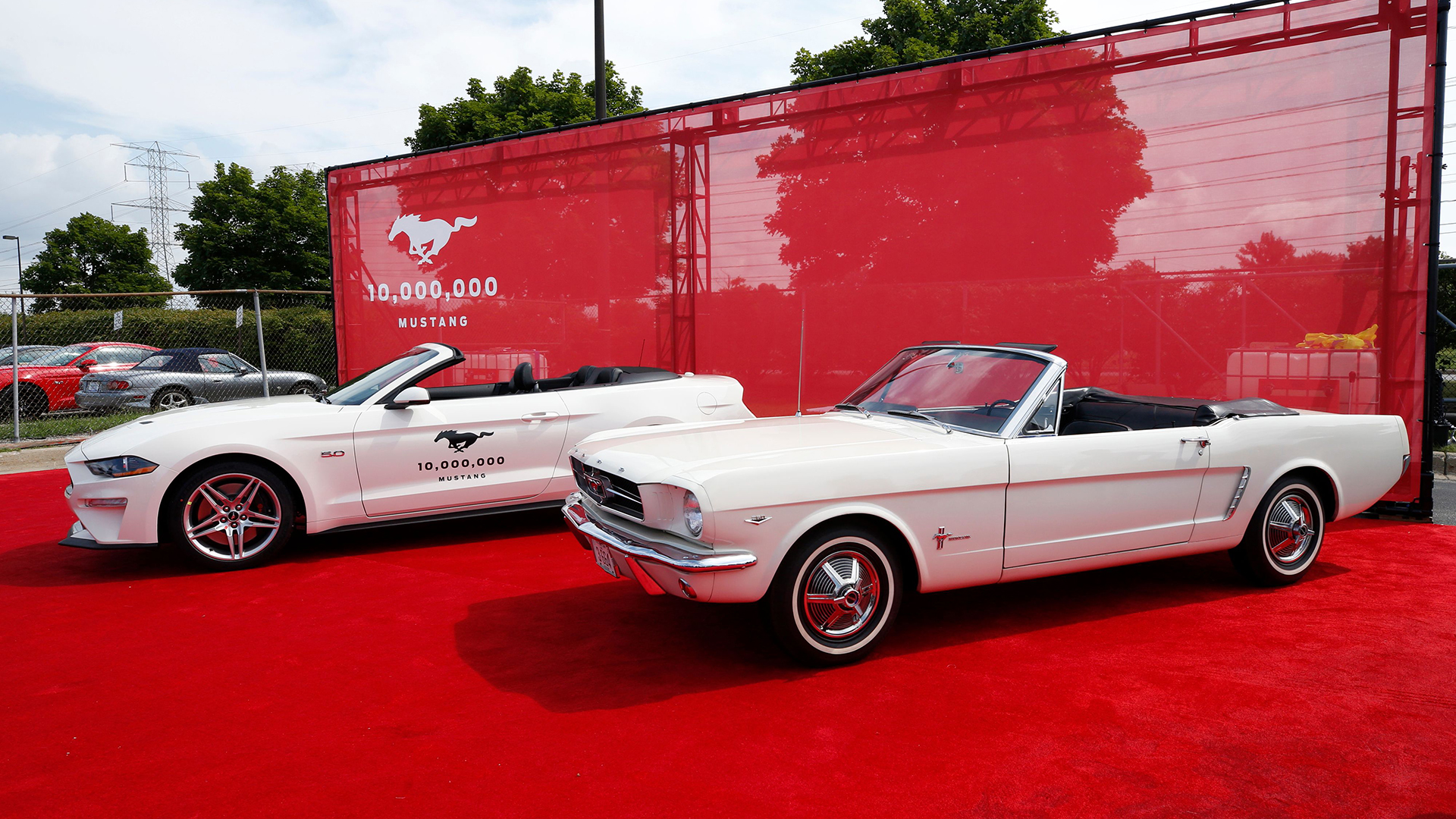

From Volkswagen to Toyota, the world’s biggest automakers are turning to the magic of modular car platforms to cut costs, increase efficiency, and make it through the cobra’s nest of emissions and safety regulations without getting bit. A recent investor meeting reveals Ford will be joining the party by paring down its current crop of nine platforms—and according to Automotive News, that means the next-generation Ford Mustang will wind up sharing a base with the company’s incoming court of crossovers.
Ford raised two important questions when it announced its plans to stop selling everything that isn’t a pickup, a crossover, or a Mustang in the American market. One was just how the company planned to build an entirely new lineup in the next five years; the other, how the Mustang would soldier on as the brand’s sole representative of low-slung fun. On Wednesday, Ford executive Hau Thai-Tang seemed to answer both during a presentation to investors in New York when he announced the automaker will move from nine to just five shared platforms across the Ford and Lincoln brands.
Automotive News reports the platforms will be designated as follows: rear-wheel-drive/all-wheel-drive body-on-frame, front-wheel-drive/AWD unibody, RWD/AWD unibody, commercial van unibody, and a separate unibody platform for electric and electrified vehicles. This would mean the Ford Mustang, which has enjoyed its own exclusive platform since the last days of the Fox body in the early 1990s, will be folded into the modular RWD/AWD unibody structure along with everything else that fits that category.
It obviously wouldn’t be the first time the Mustang shared its DNA with other cars in the Ford lineup. The pony car launched in 1964 with a bunch of Ford Falcon parts under the skin, and let’s not forget the Mustang II was essentially a Ford Pinto. The Fox platform underpinned half the Ford and Lincoln lineups in the early 1980s. But this would be the first time it rode on the same basic structure as an SUV; the next-generation Ford Explorer and planned Lincoln Aviator are reportedly moving to rear-wheel drive, making them likely “RWD/AWD unibody” cousins with the future Mustang.

We reached out to Ford for comment and we’ll update if we hear back. Using a common architecture for both a sports car and an SUV isn’t impossible—Volkswagen’s MQB platform underpins both the nimble Audi TT RS and the bus-like Volkswagen Atlas—but considering the Mustang’s historical significance and its importance to Ford’s bottom line, it’s still a bit of a surprise. For a crosstown reference, the Chevrolet Corvette still utilizes its own Y platform, while the Camaro currently shares the Alpha platform with Cadillac’s smaller sedans. There’s been no indication that the next generation of either will consolidate into a modular platform that could also carry a crossover.
Even if this news has a few Mustang loyalists in a twist, there’s a significant silver lining: at least this means more rear-wheel-drive crossovers, which is a thing that should happen more often.